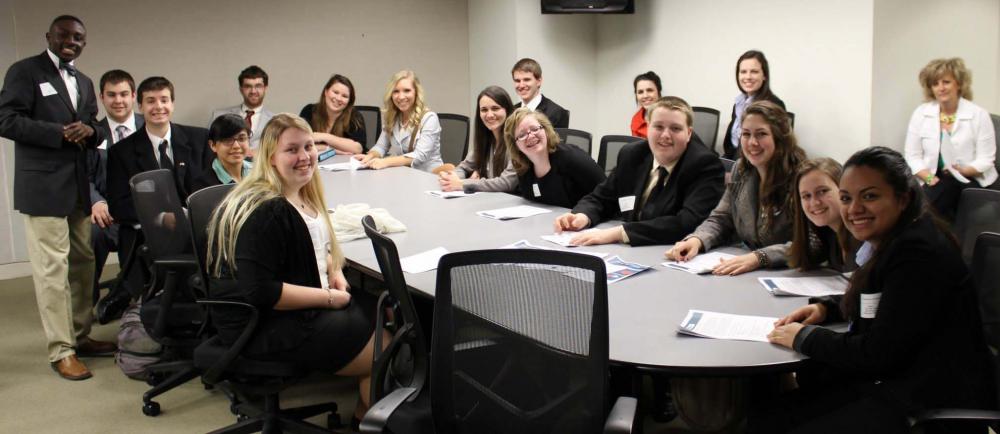
In April 2014, 34 4-H youth from across the country arrived at the US Department of Education (ED) to participate in a briefing as part of the National 4-H Conference. Federal briefings are a regular part of the annual National 4-H Conference and allow youth to present on a topic to federal employees who play a role in implementing policy. This is an outstanding educational experience for not only youth, but also federal employees, who are able to hear how decisions made at the national level impact local communities.
Half of the 4-H youth gave a presentation on school turnaround, while the other half presented on bullying prevention. The bullying prevention group focused on how school-wide programs that change group norms and improve school climate can help reduce bullying behaviors. Throughout the briefing, the youth personalized statistics with their own stories of being bullied.
While the youth saw strengths in current bullying prevention programs, in their opinion, the weaknesses could be difficult to overcome. One key weakness was the perception that teachers and school administrations do not take these programs seriously, which leads students to view the programs in the same light.
Despite the serious nature of the briefing, the youth ended on a positive note by discussing opportunities moving forward. They suggested mandatory trainings for teachers and school administrators, implementing peer-to-peer programs, and incorporating the youth voice in national policy decisions.
The youth emphasized using social media in bullying prevention efforts. Sites like Twitter and Instagram were mentioned as key ways to engage youth in the discussion. While many of these strategies are already used by the Federal Partners in Bullying Prevention, this provided more evidence of the importance of these strategies for future activities.
The youth left the briefing feeling energized and that their voices had been heard. Kelsey Kannenberg, the 4-H college-level facilitator for the bullying prevention briefing, said:
“It was wonderful to see the youth delegates work together to develop and conduct the briefing presentation at ED. Many members of the group had contrasting past experiences regarding anti-bullying programs, so they had to work together in order to synthesize ideas and suggestions on which everyone agreed. Through group discussions, it became evident that many of the youth possess an inspiring passion for improving anti-bullying programs across the country. Members of the group exhibited creativity, dedication, and leadership as they formed a presentation that included ideas to prevent bullying in their communities.”
Many youth delegates expressed that through this experience, they learned a significant amount about how different forms of bullying affect young people throughout the country and that they became familiar with new concepts regarding how to prevent bullying. Additionally, the briefing gave them an opportunity to interact with federal employees in a professional setting, which opened their eyes to an aspect of federal agencies that they previously had not experienced. Overall, the youth delegates seemed to walk away from the briefing experience with a fresh attitude about their government and a renewed dedication to eliminating bullying in their communities.
For more information regarding 4-H, please contact Suzanne LeMenestrel, National Program Leader, Division of Youth and 4-H.
For more information regarding the 4-H National Conference, please contact Doug Swanson, National Program Leader, Division of Youth and 4-H.

